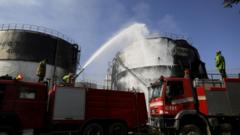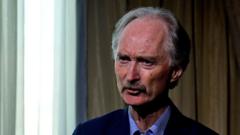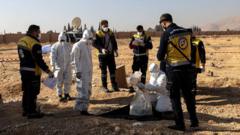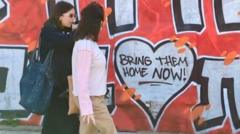This report explores the accusations made by Human Rights Watch against Israel, their implications, and the counterarguments positioned by the Israeli government.
Human Rights Watch Claims Israel's Actions in Gaza Constitute Genocide

Human Rights Watch Claims Israel's Actions in Gaza Constitute Genocide
Human Rights Watch alleges that Israel's operational strategies in Gaza amount to deliberate genocide, particularly regarding the water crisis faced by Palestinian civilians.
Human Rights Watch (HRW) has leveled serious accusations against Israel, asserting that its actions in Gaza amount to "acts of genocide" through the systematic deprivation of water access for Palestinian civilians. The organization's comprehensive 179-page report claims that Israel has intentionally damaged vital water and sanitation infrastructure in Gaza, leading to thousands of deaths from dehydration and disease. According to HRW executive director Tirana Hassan, this constitutes "a calculated policy of deprivation" and implies the potential committing of a "crime against humanity of extermination."
The evidence presented in HRW’s report is based on interviews with a variety of Gazans, including officials, healthcare professionals, and sanitation experts, along with satellite imagery and data collected from October 2023 to September 2024. The report asserts that since initiating a military offensive after Hamas's attacks on October 7, 2023, Israel has deliberately obstructed water access by damaging treatment plants and blocking fuel supplies essential for water pumping stations.
In stark contrast, Israel's government has rejected HRW’s findings, dubbing them as "propaganda" intended to malign its actions. Israeli Foreign Ministry spokesman Oren Marmorstein contended that Israel continues to supply water and humanitarian aid into Gaza, highlighting that various water infrastructure, including pipelines, remains operational. Marmorstein's rebuttal frames HRW's report as "full of lies" and states that allegations of genocide lack factual basis and are often fueled by antisemitic sentiments.
HRW's allegations contribute to a growing chorus of criticism directed at Israel's operations in Gaza, with the International Court of Justice currently reviewing a case brought by South Africa that accuses Israel of genocide. Documented evidence indicating intent is essential to establishing genocide under the 1948 Genocide Convention, and HRW suggests that statements from Israeli officials might lend credence to their assertion of intent.
As the Israeli-Palestinian conflict continues to unfold, the opposing narratives highlight the complexities of humanitarian conditions in Gaza and the broader implications for international law and human rights accountability. The situation remains dire for civilians affected by the ongoing conflict, raising significant concerns about the humanitarian crisis and the international community's response.
The evidence presented in HRW’s report is based on interviews with a variety of Gazans, including officials, healthcare professionals, and sanitation experts, along with satellite imagery and data collected from October 2023 to September 2024. The report asserts that since initiating a military offensive after Hamas's attacks on October 7, 2023, Israel has deliberately obstructed water access by damaging treatment plants and blocking fuel supplies essential for water pumping stations.
In stark contrast, Israel's government has rejected HRW’s findings, dubbing them as "propaganda" intended to malign its actions. Israeli Foreign Ministry spokesman Oren Marmorstein contended that Israel continues to supply water and humanitarian aid into Gaza, highlighting that various water infrastructure, including pipelines, remains operational. Marmorstein's rebuttal frames HRW's report as "full of lies" and states that allegations of genocide lack factual basis and are often fueled by antisemitic sentiments.
HRW's allegations contribute to a growing chorus of criticism directed at Israel's operations in Gaza, with the International Court of Justice currently reviewing a case brought by South Africa that accuses Israel of genocide. Documented evidence indicating intent is essential to establishing genocide under the 1948 Genocide Convention, and HRW suggests that statements from Israeli officials might lend credence to their assertion of intent.
As the Israeli-Palestinian conflict continues to unfold, the opposing narratives highlight the complexities of humanitarian conditions in Gaza and the broader implications for international law and human rights accountability. The situation remains dire for civilians affected by the ongoing conflict, raising significant concerns about the humanitarian crisis and the international community's response.


















